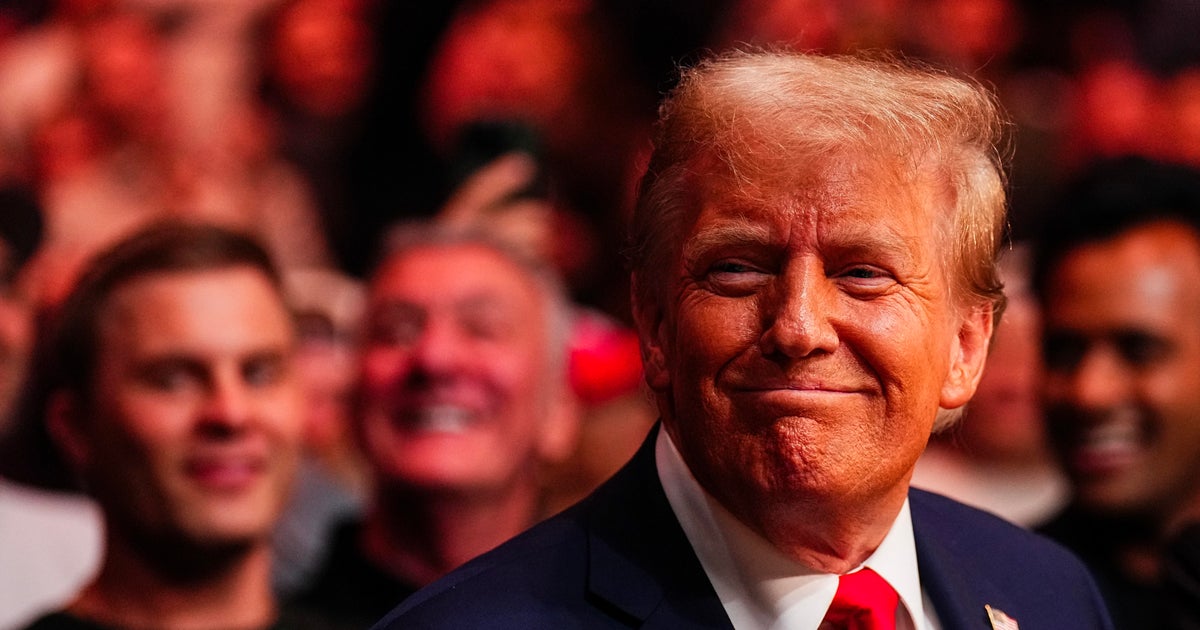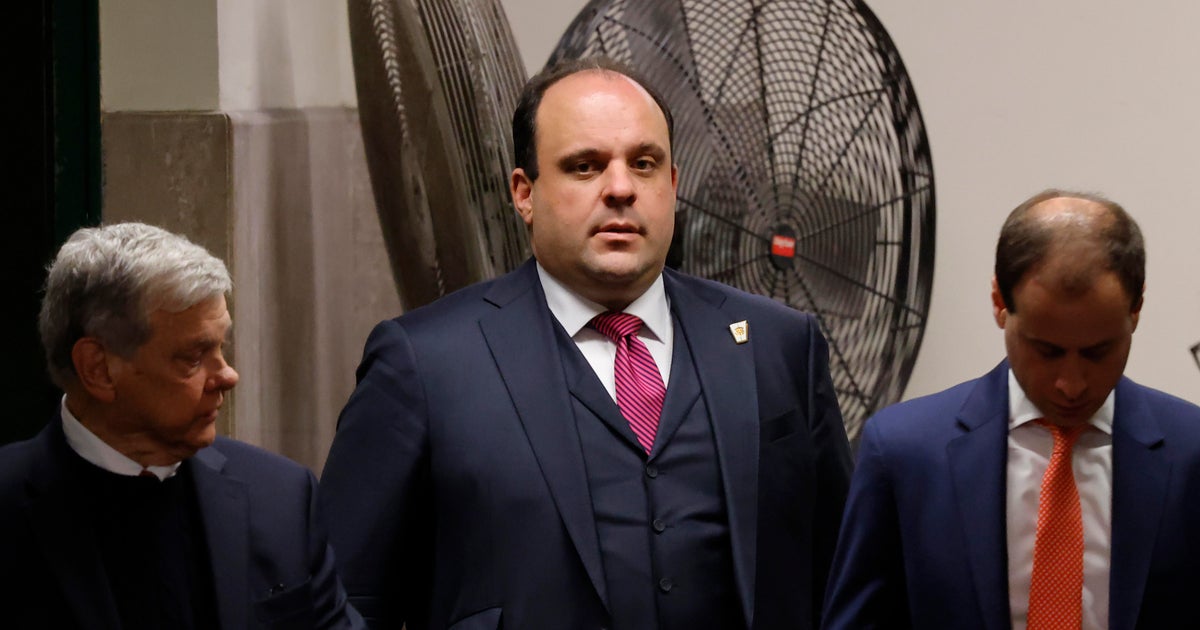Senate Judiciary Committee members spar over ethical standards for Supreme Court
Washington — The Senate Judiciary Committee on Tuesday debated renewed calls for the Supreme Court to strengthen its ethics rules, with the panel's members lining up along familiar battle lines over whether the high court should be required to impose a binding code of conduct.
The hearing, which featured testimony from former federal judges and legal experts, was scheduled in the wake of a pair of reports that scrutinized Justice Clarence Thomas and his ties to a Republican real estate magnate, Harlan Crow.
Senate Democrats on the committee stressed that the revelations underscored the need for a legislative response and lamented that the Supreme Court's lack of binding ethics rules sets the nine justices apart from other public servants across all levels of government.
"Because the court will not act, Congress must," said Sen. Dick Durbin, the Judiciary Committee's chairman.
Republicans have brushed off recent reports focusing on Thomas and Justice Neil Gorsuch, and instead have accused some media outlets and Democrats of mounting politically driven attacks on the conservative justices.
"This is an unseemly effort by the Democratic Left to destroy the legitimacy of the Roberts court," said Sen. Lindsey Graham, the committee's top Republican. "It's put people at risk, it's put their personal safety at risk, and if you want to talk about making the court a better institution, I'd be glad to work with you in that regard. If you want to talk about destroying the court, count me out."
The Senate panel moved forward with the hearing after Chief Justice John Roberts rebuffed an invitation from Durbin to appear. Instead, the chief justice provided the committee with a three-page "Statement on Ethics Principles and Practices," signed by the nine members of the court, that "reaffirm and restate foundational ethics principles and practices to which they subscribe."
Democrats pushed back on Roberts' refusal to testify and said his statement "raises more questions than it resolves." In opening remarks at the start of the hearing, Durbin called the ethics statement "an extraordinary document, not in a good way," and said it indicates the justices do not feel "bound" by authorities on how to address ethical issues.
"It is critical to our democracy that the American people have confidence that judges cannot be bought or influenced and that they are serving the public interest, not their own personal interest," the Illinois Democrat said, later adding, "The highest court in the land should not have the lowest ethical standards."
But Graham said he does not believe it's "wise" for Congress to take over the court's ability to set rules for itself. He characterized the recent media reports focusing on the conduct of conservative justices in particular as a "concentrated effort by the left to delegitimize this court and to cherry-pick examples to make a point."
Though Graham does not support legislative proposals that would require a code of conduct for the Supreme Court, he acknowledged the justices adhere to lower standards than the legislative and executive branches, and urged the high court to act on its own.
"What I would urge the court to do is take this moment to instill more public confidence," he said. "I think we'd all be better off if they did that."
Congress trained its attention to ethical standards at the Supreme Court after ProPublica published a report detailing lavish trips and travel Thomas accepted for decades from Crow, a major Republican donor and real estate developer. The news outlet also revealed that Crow, a longtime friend of the justice, bought three properties belonging to Thomas and his family.
Thomas did not report either the land deal or the vacations on financial disclosure forms. In a statement about the luxury vacations, the justice said he consulted with colleagues and others in the judiciary about the vacations and was advised "that this sort of personal hospitality from close personal friends, who did not have business before the court, was not reportable."
Thomas said it is his "intent to follow" new guidance from the Judicial Conference, which sets policy for the federal judiciary, that was announced in March.
Still, Thomas' assurances have done little to assuage Democrats in Congress, who argue the Supreme Court is effectively exempt from accountability and its integrity has come into question by the public. Republicans, meanwhile, have said the recent attacks on the Supreme Court, which has a 6-3 conservative majority, are driven by partisanship and a disapproval of its recent decisions.
Supreme Court justices are required to file annual financial disclosure forms. Judges on the U.S. District Courts and Courts of Appeals also must abide by a code of conduct, which instructs judges to "avoid impropriety and the appearance of impropriety in all activities."
But Supreme Court justices are not covered by that code, though lawmakers have introduced proposals that would require them to adopt one. Last week, Sens. Angus King, a Maine independent, and Lisa Murkowski, an Alaska Republican, introduced a bill that would require the high court to put in place a code of conduct and designate an official to look into alleged ethical violations.
Sen. Chris Murphy, a Connecticut Democrat, has also re-upped his proposal that would require the Judicial Conference to create an ethical code of conduct for Supreme Court justices and lower court judges. Sen. Sheldon Whitehouse, a Rhode Island Democrat, has legislation that creates a process for investigating misconduct at the high court, improves disclosure rules for travel and hospitality, and strengthens recusal standards.
Those proposals, though, are unlikely to land on President Biden's desk given the thin majority in the Democratic-controlled Senate and GOP control of the House. Whether Congress has the authority to require the Supreme Court to create and adopt a code of conduct is also a subject of debate among legal experts.
"Basic principles of the separation of powers mean that the court, as a separate branch of government and the only court specifically provided for in the Constitution, is solely responsible for its financial disclosure and ethics rules," said former Attorney General Michael Mukasey, who is among the witnesses set to appear before the Judiciary Committee.
He added, "A law compelling the court to adopt such a code, or purporting to impose one legislatively, would violate the principle of separation of powers, and would also be unworkable inasmuch as there is no authority other than the justices themselves to apply such a code."
Mukasey, who served nearly 20 years as a federal judge in New York, dismissed recent criticisms of the Supreme Court and said the public is being asked to "hallucinate misconduct" as part of an effort by the court's critics to undermine the authority of its rulings.
"If the public has a mistaken impression that the integrity of the court has been damaged, the fault for that lies with those who continue to level unfair criticism at the court and its justices," he said.
But Jeremy Fogel, a former federal judge who also served as director of the Federal Judicial Center, said the status quo cannot stand and advocated for the adoption of a code of conduct.
"In this fraught environment, I believe that the absence of a formal structure for defining and validating the ethical rules governing the conduct of Supreme Court justices is untenable," he said. "Too many Americans already think the justices decide cases based on their political preferences and alliances rather than the law. Lack of clarity about the justices' ethical obligations only feeds that perception."
Former federal judge Michael Luttig, who is widely respected among conservatives, separately told the committee in a written statement that while the country should "never have reason to question the ethical conduct of the Supreme Court," it is the responsibility of the high court and each of its members "to ensure that there never even be such a question raised."
"Thus, there should never come the day when the Congress of the United States is obligated to enact laws prescribing the ethical standards applicable to the non-judicial conduct and activities of the Supreme Court of the United States, even though it indisputably has the power under the Constitution to do so, but paradoxically, does not have the power to require the Court to prescribe such standards for itself," Luttig wrote.
But he added that the non-judicial conduct and activities of the Supreme Court are "subject to law," and rebuffed the partisan nature of the discussion surrounding whether the court is subject to ethical conduct rules, writing it is "emphatically not a partisan political issue and must not become one."




